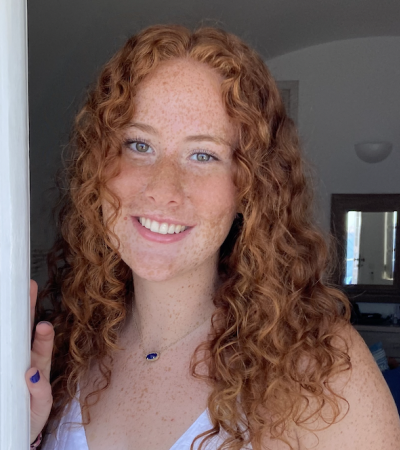Community Engagement with Health Care Systems in Urban and Rural Ecuador; Child Family Health International
Experiencing the World Fellowship
Adviser: Jason Springs
Organization: Child Family Health International
Final Report:
Oral Healthcare in Ecuador
During the month of July of 2023, I traveled to Quito, Ecuador with Child Family Health International’s Global Health in Ecuador program to do oral healthcare research in urban and rural areas of Ecuador, shadow healthcare professionals, and take Spanish classes. My four weeks in Ecuador were filled with learning, growth, challenges, and rewards. I grew in many areas: language and interpersonal skills, medical terminology and understanding, as well as overall flexibility, open-mindedness, and problem-solving skills. I adapted to environments, made friends, learned medical techniques, vocabulary and procedures, and expanded my comfort zone.
One of my goals for the experience was to learn about healthcare systems in a location other than the United States. This experience taught me just that. I was able to witness firsthand the processes, procedures, and happenings at hospitals and private clinics in Ecuador. During my experience, I visited mainly healthcare practice sites in various parts of Quito. I shadowed a family doctor, spent a week in the emergency pediatric unit, witnessed the work of a dental services hospital, shadowed a general dentist, and visited a traditional medicine clinic.
I was able to expand my knowledge and research into rural areas and get a taste of traditional medicine. I spent a day in a traditional medicine clinic where I learned about herbal remedies, saw a traditional massage, witnessed egg and cuy cleanings performed to interpret and read illnesses and ailments, and learned about traditional birth practices. It was fascinating to learn about rural Ecuadorian practices and compare them to modern, urban practices. Although I wasn’t able to witness rural dental work on this trip, that is something I’d like to explore further in the future. However, it was helpful to have context around the significance of rural medicine to broaden my scope of understanding of the healthcare systems in Ecuador.
I learned about the cultural significance of healthcare in the public setting. Our group learned about the history of the healthcare system in Ecuador and how traditional medicine is newly accepted into Ecuadorian society as a form of medicine within the past ten years. Society is working to bridge together the two forms of healthcare to be used in conjunction with each other, to provide the best medical care possible, while being mindful of values, traditions, and highly regarded medical practices of the ancient world.
I encountered many challenges and obstacles during this process. Firstly, I was initially planning to go to Guayaquil and Puyo, Ecuador to do a comparative study regarding healthcare access in rural versus urban areas. My plans were pivoted, however, when I was informed that I would be unable to travel to Guayaquil due to safety concerns. From the beginning, I was flexible and embraced the idea of traveling to Quito instead. At first, I was apprehensive about my lack of a concrete plan, but soon learned that CFHI was prepared and willing to host me, and it was feasible to combine my interests of global health and dentistry in this new setting. While in the field, I found both excitement but also discomfort. At times it was slightly overwhelming. It was apparent that I was a foreigner and didn’t fully understand the language. The first week in the hospital, I stayed in the shadows just observing and watching the doctor. However, I had the desire to ask more questions and get more involved. Once I shifted my mentality from being embarrassed of my mistakes and presence to instead embracing the uniqueness of my position, I set myself up for success and learned so much more. In the next few weeks, I asked more questions, talked to the doctors and patients about their experiences with the healthcare system, and grew in my language skills.
By pushing myself out of my comfort zone, I allowed myself to engage and dive deeper into my research. I made a presentation on the differences between rural and urban healthcare practices in the dental/oral healthcare field and presented it to my fellow group members at the end of the month. Utilizing my personal experiences in the field, as well as conversations with local community members and doctors, as well as scientific journal research online, I broadened my knowledge and understanding of Ecuador’s healthcare system. I learned that the technology, medical procedures, and practices in private urban dental settings are advanced and similar to counterparts I’ve witnessed in the United States. From my experience at the alternative medicine clinic, I learned that rural areas correlate with traditional medicinal practices, and many rural Ecuadorian communities are not educated on safe dental care and healthy practices. This results in high levels of cavities, especially in younger children. A few of the urban healthcare providers I shadowed told me they found that many rural areas didn’t have up-to-date technological practices and tools such as dental chairs, x-rays, and cleaning practices, so there is work to be done to close the gap in oral healthcare between urban and rural settings, combining traditional practices with modern medicine.
Overall, there is more research to be done with learning about rural medicine, especially rural dentistry. I would be interested in learning more about Ecuadorian rural dentistry in the future, building on my understanding of this summer’s experience. I’m very thankful for this opportunity and am grateful to the Kellogg Institute for their support!






